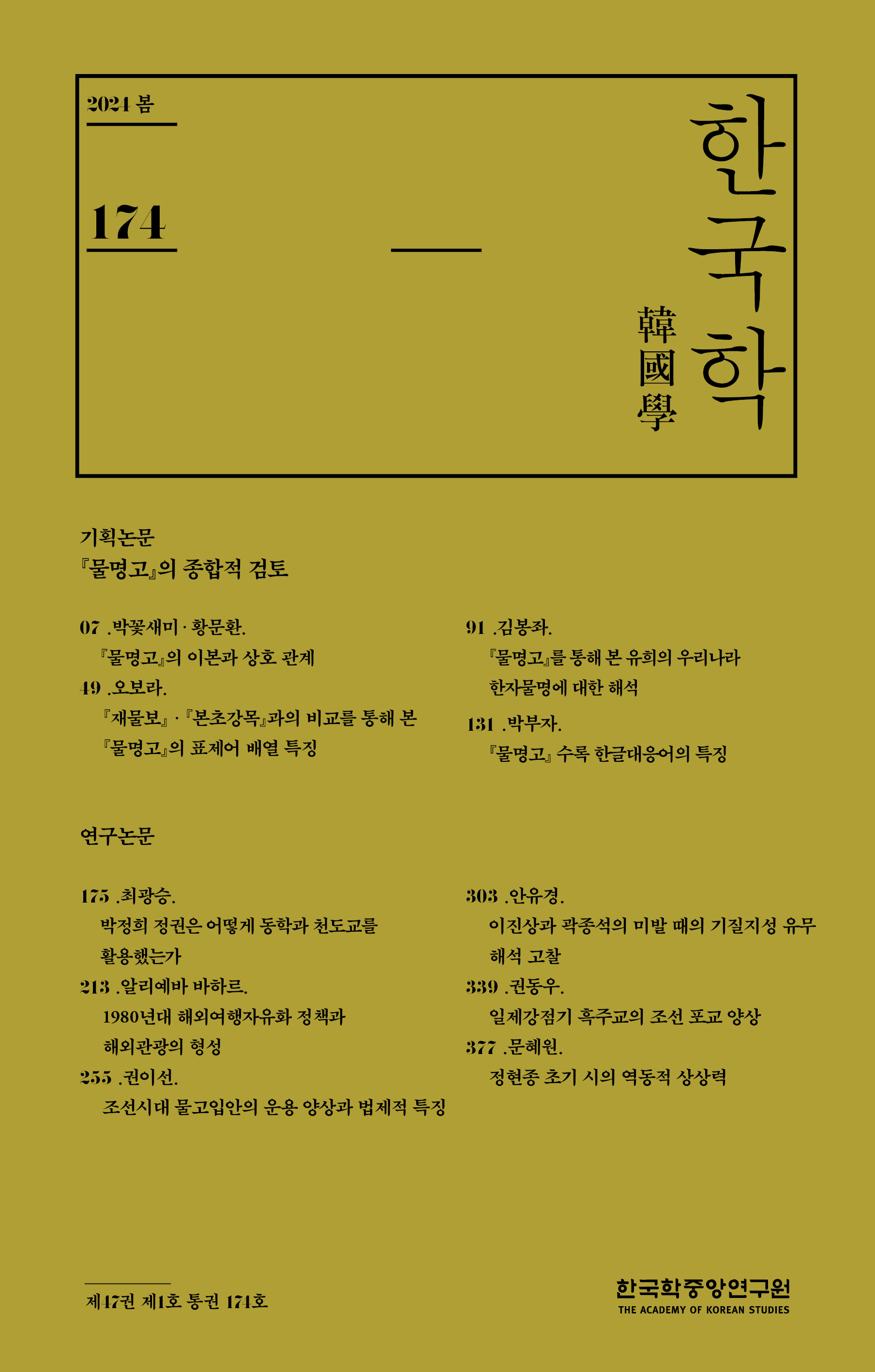
- P-ISSN 2671-8197
- E-ISSN 2733-936X
.jpg)
In the modern society, the process of discourse on the authenticity of human dignity is of highest importance. Two mediums to ensure this authenticity are morality and law. However, while these two mediums serve as social norms, it is the human rights that combine these two in reality. Human rights are not closed and inflexible concept; rather, human right is defined by the society and the era. Furthermore, it is a dynamic concept in that it changes and proliferates as human rights movement expands human rights and creates new human right concepts. If there is a widespread prejudice that the universality of human right indiscriminately treats cultural difference with no regard to historic and cultural context, the universality, far from being accomplished, is a goal to achieve. Humans, as the subjects of human rights, do not abstractly exist by themselves. On the contrary, they exist as concrete individuals or groups who live in midst of social relationships and communal lives. Therefore, there exists interdependency between “my” human rights and others’ human rights; my human rights and the community’s human rights; one community’s human rights and another community’s human rights. Duty, from the human rights point of view, is not a forced duty that a government imposes upon its constituents. The duty is, however, not to eschew the reality where human rights are violated; it is to work in “solidarity” in establishing a social order and redistributing of social wealth, so that everyone’s human rights are respected. Thus, our agenda includes expanding pluralism and obtaining formality in addition to universality, and finally, to put human rights into practice.
김준수, (1996) 근대 소유권 이론의 자연법적 근거와 그 유형들, 중앙대인문학연구소
남경희, (1991) 사유재산권의 두 근거로서의 노동과 이성: 김남두 교수의 논문에 대한 논평. ,
명재진, (2004) 基本權의 客觀的 秩序性 에 관한 硏究, 공법학연구
안옥선, (2002) 개인주의적 인권에 대한 불교적 비판, 새한철학회
양명수, (1998) 동아시아 평화와 인권을 위한 연대,
오영달, (2001) 주권과 인권에 대한 홉스와 로크이론의 비교연구,
유홍림, (2001) 인권의 보편성 문제,
이동수, (2006) 공존과 배려: 타자와의관계에관한동서양정치사상비교, 정치사상연구
이봉철, (2001) 현대인권사상, 아카넷
이삼열, (2002) 인권 개념의 발전과 사회운동., 한국인권재단
이상돈, (2005) 근대적 인권 개념의 한계, 고려대 법학연구원
이상훈, (2005) 인권 패러다임과 사회동학,
이준일, (2000) 기본권의 기능과 제한 및 정당화의 세 가지 유형,
임재진, (1998) 헤겔의 인륜이론 정초에 대한 연구,
장은주, (1992) 문화적 차이와 인권,
장인성, (2002) 근현대동아시아 국제사회와 동아문명: 구성원리와 존재방식.,
정연식, (2001) 민주화와 권리의식,
한상범, (1981) 현대 헌법의 기본적 근거와 그 문제 현황,
Bauer, (1991) A Progress of Sentiments Reflections on Hume's Treatuse, Harvard Univ Press
Berlin, (1969) Two Concepts of Liberty in Four Essays on Liberty, Oxford University Press
Donnelly, (1989) Universal Human Rights in Theory and Practice, Itaca and London Cornell University Press
Cambridge, (1994) Human Rights in Another Key, Polity Press
Gould, (1988) Freedom and Social Co-operation in Politics, Cambridge University Press
O, (1993) Human and Peoples' Rights for the Oppressed, Lund University Press
Jameson, (1992) or The Cultural Logic of Late Capitalism, Duke Univ
Johnson, (1993) Implications of Cognitive Science for Ethics University of chicago Press,
Kant, I, (1995) Founations of the Metaphysis of Morals., Prentice Hall Inc
Nussbaum, (1997) Cultivating Humanity: A Classical Defense of Reform in Liberal Education. , Harvard University Press